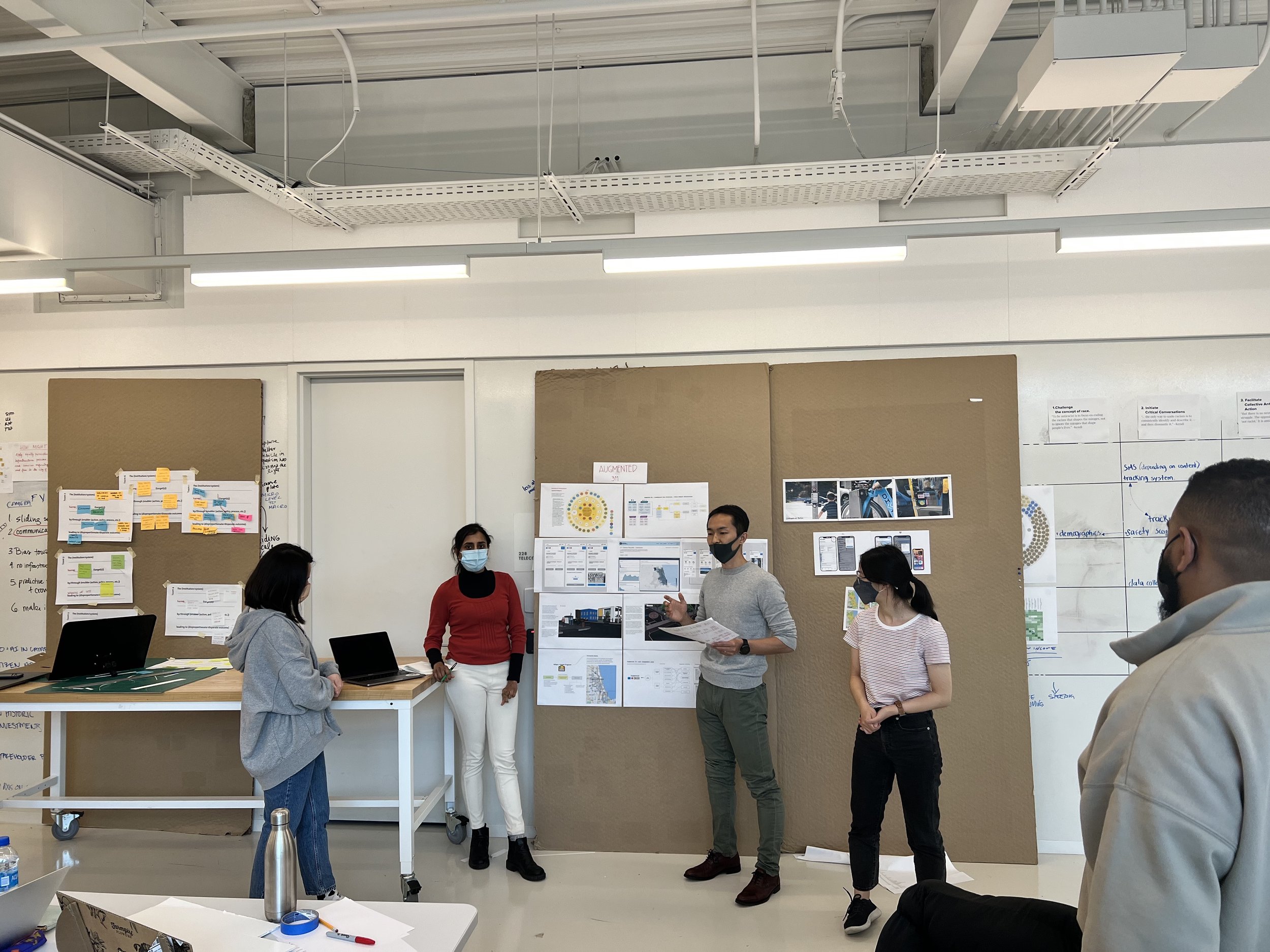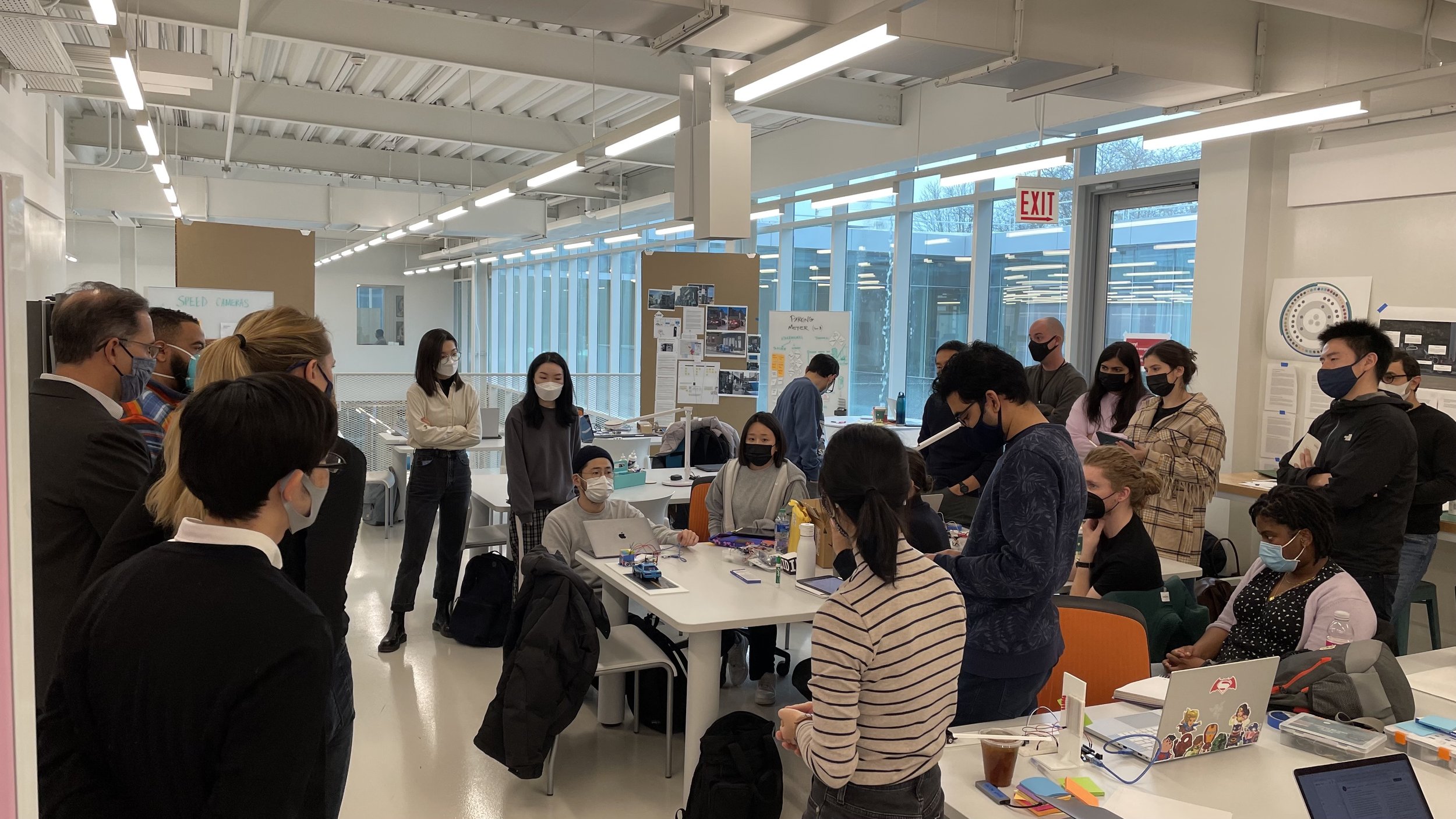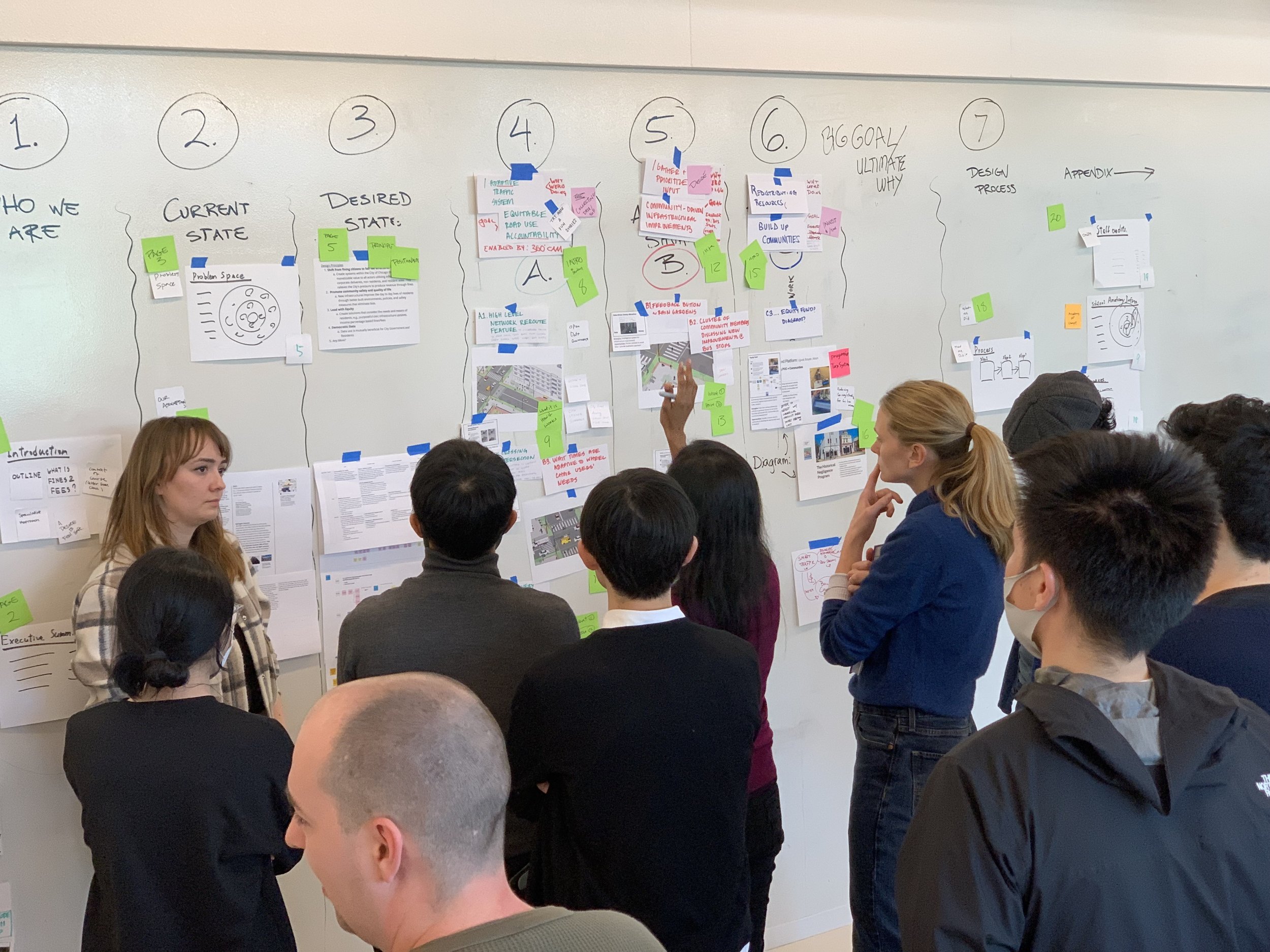Reimagining the Resident-Government Relationship
Jan 2022 - May 2022
Today, civic technology acts as a facilitator of government power. Focusing on how that power is wielded and expressed, participants examined the civic technologies that Chicago’s government activates to police speeds, intersections, roads, and people. These infrastructures have been at the center of complex issues and inequities faced by Chicago residents. A solution-oriented approach was taken to imagine new systems embracing these complex issues through collective intelligence, civic infrastructures, and community empowerment.
In this year’s project, Sustainable Solutions Workshop with Carlos Teixeira, Chris Rudd, and Ruth Schmidt, participants applied design methods and strategic thinking through open innovation practices for leveraging the interconnectivity of markets, technology, finance, and social networks. In doing so, participants were able to envision how sustainable solutions will impact the local lives and well-being of communities, specifically Chicago. Using generative prototyping and research through designing, new infrastructures were envisioned to enable new modes of operation, governance, and revenue generation that create a new Chicago.
Role
Designer, Design Researcher
Tools
Figma, Whiteboarding + Stickies
A systems approach to designing a more equitable and sustainable Chicago.
Overview
The Problem
For years, Chicago’s roads have been fertile ground for inequities. While metro lines only go so far, they’re directed towards downtown and the city’s core. Residents living in the South or West side are forced to commute by car and that’s where a number of problems start. Fines and fees make it extremely expensive to own a car in Chicago. Citations and tickets can quickly pile up, and for the working class, which is majorly BIPOC and Latinx communities, the price tag can be detrimental. One fine for a low-income resident can snowball into thousands of dollars, garnished tax refunds, vehicle impoundments and a drivers-license suspension. Many residents have resorted to declaring bankruptcy as a way of relieving the crushing weight of debt.
The Solution
Shifting power dynamics towards community decision-making to improve the quality of life for all by envisioning a future where Chicago is a leader in providing all residents a healthy, affordable, and thriving quality of life. A future where Chicago creates an empowering society through equity-driven civic infrastructures, the fair use of data, and an environmentally sustainable built environment.




